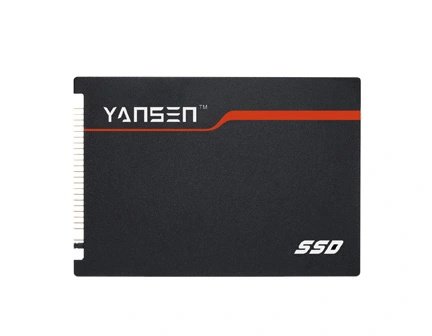Enterprise Solid State Drives Versus Consumer Solid State Drives
(2023年07月07日)https://www.yansen-ssd.com/enterprise-solid-state-drives-versus-consumer-solid-state-drives.html
Compare the three main qualities of enterprise SSDs to consumer SSDs: performance, reliability, and endurance.
1. Enterprise SSDs Function
For enterprise SSDs, in typical data center scenarios involving the processing of millions of bytes of random corporate data (including collaboration on CAD technical drawings, seismic data for analysis (e.g. Big Data), or access to global customer data for banking transactions), the storage device must be accessed with minimal latency and can involve clients requiring concurrent access to the same data without impacting response times. This has an impact on response times. With consumer SSDs, client use programs involve only a single user or use program access, with a higher tolerance between the shortest and longest response times for any user or system operation. Unlike consumer SSDs, enterprise SSDs are optimized not only for maximum performance in the first few seconds of access but also for the use of larger reserved space (OP), so that this enterprise SSDs can also provide continuous, consistent performance over longer periods of time.
2. Reliability of Enterprise SSDs
NAND flash memory has a number of inherent issues of its own, the two most important of which include limited life expectancy and naturally occurring error rates. During NAND flash production, each NAND flash particle is tested and characterized by an underlying bit error rate (BER or RBER), which defines the rate of bit errors that occur naturally in NAND flash without the benefit of an error correction code (ECC). The ability of the flash processor to correct these bit errors can be illustrated by the Unrepairable Bit Error Rate (UBER), as described by the JEDEC committee in 2010 in the document "JESD218A: Solid State Drive (China SSD) Requirements and Endurance Test Methodology" and document "JESD219: Solid State Drive (SSD) Requirements and Endurance Test Methodology". As defined and standardized in JESD219: Solid State Drive (SSD) Endurance Workload, Enterprise SSDs differ from Client SSDs in many ways, including but not limited to the fact that Enterprise SSDs support heavier write workloads, more extreme environmental conditions, and recovery from higher BERs than Client SSDs. BER than client SSDs. When comparing enterprise SSDs to client SSDs in terms of applying JEDEC recommended UBER requirements, enterprise SSDs require only 1 bit per trillion bits processed (~1.11 PB) to experience 1 bit of unrepairable bit error, compared to 1 bit per trillion bits processed (~0.11 PB) for client SSDs.
If you want to know more details of enterprise ssd vs consumer ssd, please visit our website.
- «前のできごと |
- 次のできごと»
- このできごとのURL:



コメント